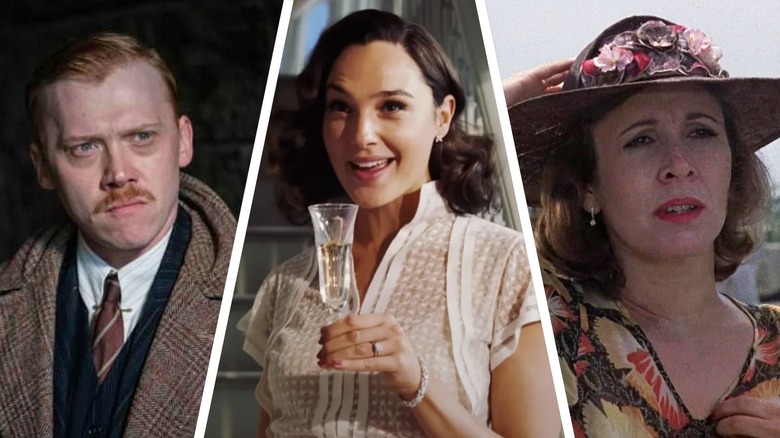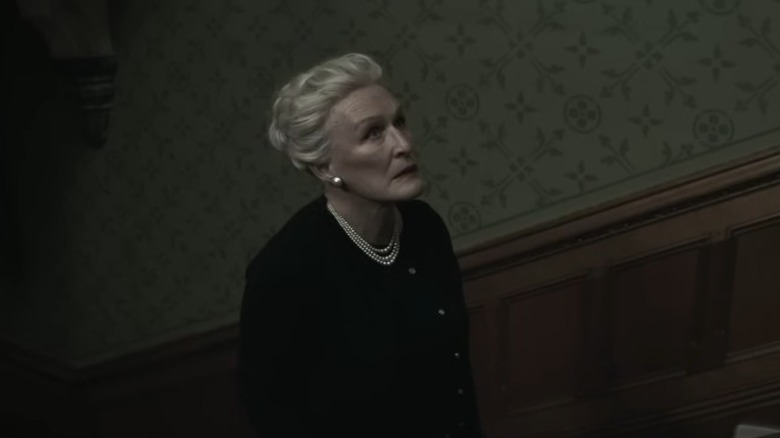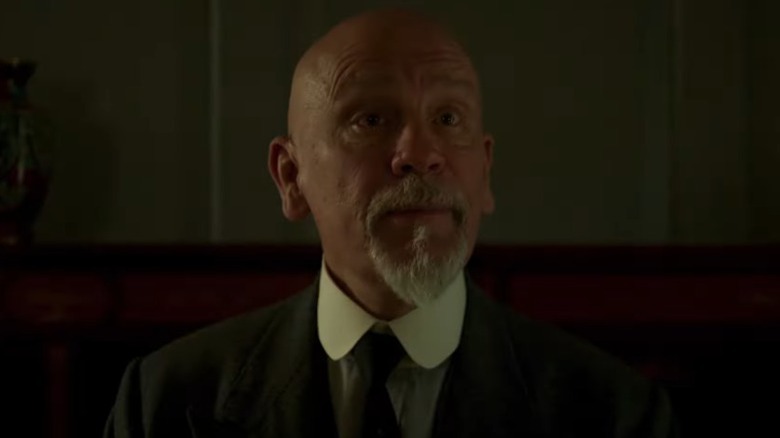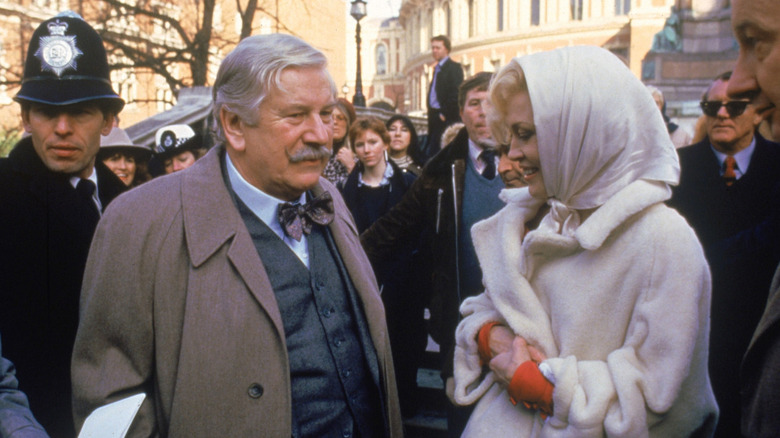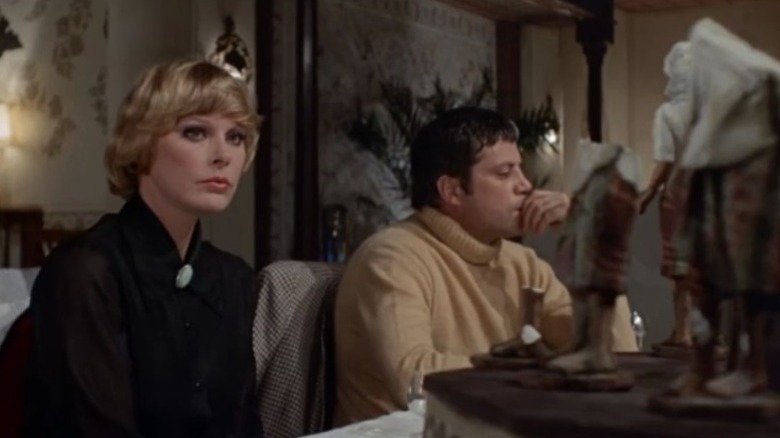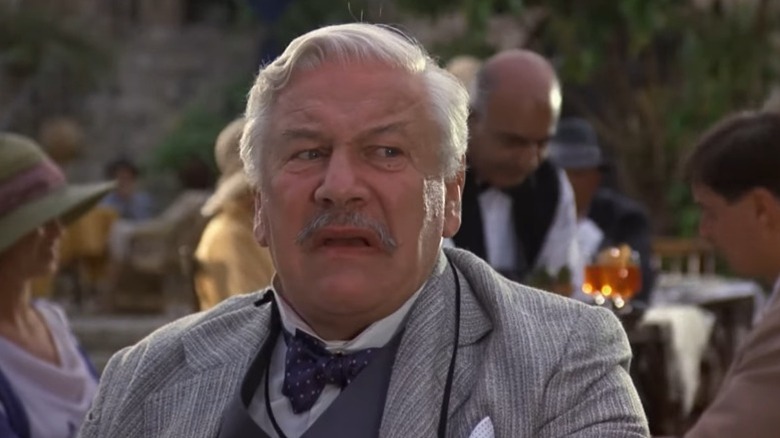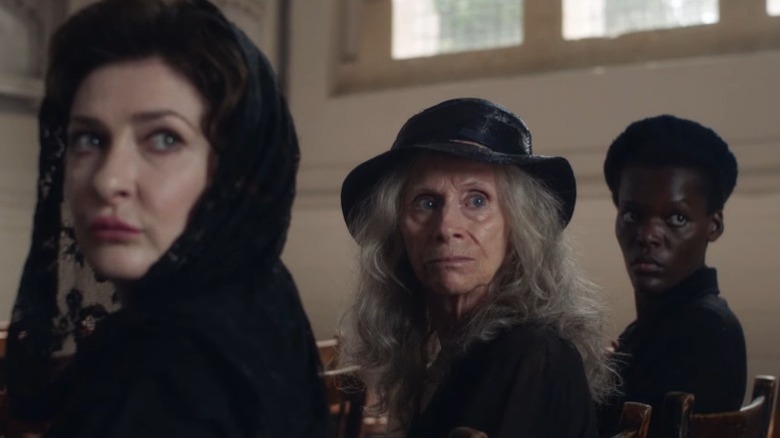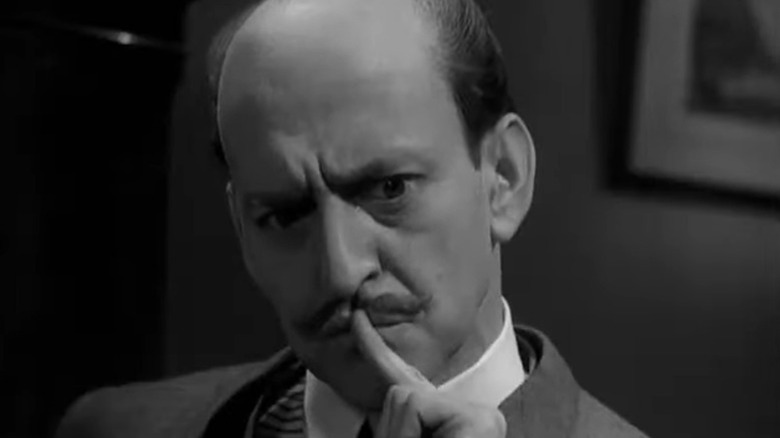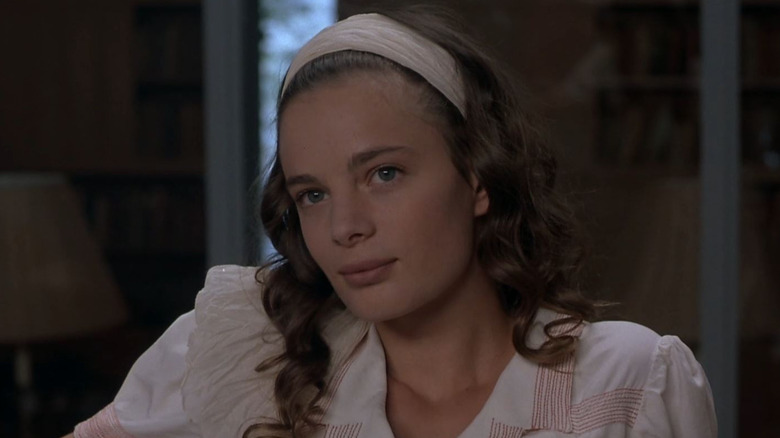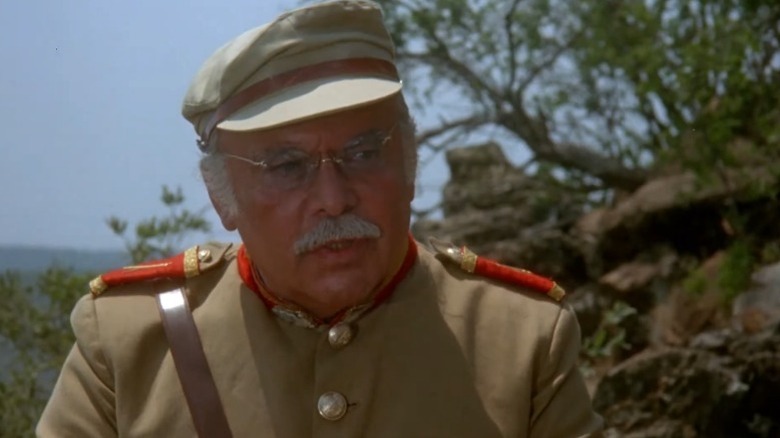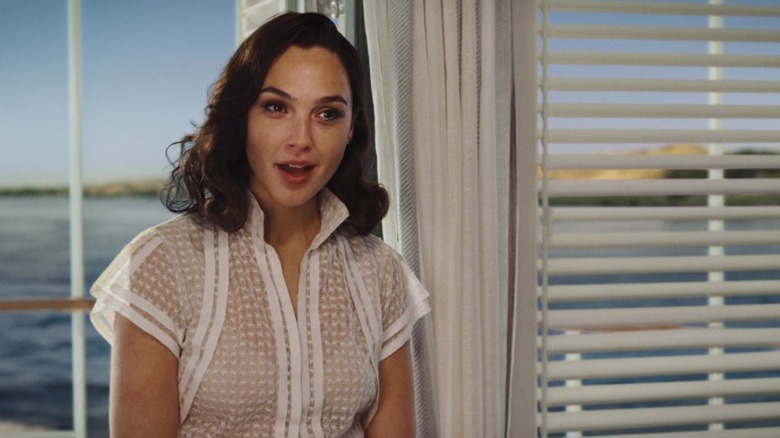10 Worst Agatha Christie Movies & TV Shows, Ranked
We may receive a commission on purchases made from links.
Agatha Christie mastered the detective novel and its crowd-pleasing appeal early on in her career, and then she spent the better part of six decades stacking hit novel on top of hit novel by alternately riffing on and twisting around the blueprint she herself had set. Given the level of relentless professionalism we're talking about, it should not be particularly difficult to make solid movies and TV shows out of Christie's oeuvre. Her works practically slide onto the screen by themselves, every twist and every peak and valley of tension ingrained into the raw material.
And yet.
For a writer whose work has served as the basis for so many adaptations, it's actually pretty impressive how strong the batting average of Christie-inspired cinema is. You can get two thirds into the entire catalog of Agatha Christie movies without hitting a truly bad one. But still, there are a handful of films and series that fumble her work to a rather spectacular degree — either by misunderstanding its core charms and sustaining principles, chucking those charms and principles out the window for no discernible purpose, or just wasting them on shoddy audiovisual execution.
Below, you'll find a ranking of the 10 worst film and TV adaptations of Agatha Christie books ever, ordered from the pretty bad to the outright catastrophic. Some of these may come as revelations to less familiar readers — did you know that they once tried to turn Hercule Poirot into Inspector Clouseau?. But with apologies to the master herself, you will find that the #1 probably won't be a huge twist.
10. Crooked House
The 1949 novel "Crooked House" is among Agatha Christie's most celebrated 1940s works, as well as one of Christie's own personal favorites. Its standalone story of a chaotic family saga as brought to light by the mystery of the patriarch's assassination is perfect fodder for ensemble work, which makes it a bit surprising that it only received a single film adaptation. Directed by Gilles Paquet-Brenner, the 2017 film was a long-gestating affair, which had Julie Andrews and director Neil LaBute attached all the way back in 2011. That particular version of the movie never materialized, though, and the one that did was a bit underwhelming.
The cast, to be sure, is reliably excellent: Glenn Close makes the five-course meal you'd expect out of the role of tortured matriarch Lady Edith de Haviland, and the likes of Terence Stamp, Gillian Anderson, Julian Sands, Christina Hendricks, and Max Irons do similarly strong work around her. But Paquet-Brenner's "A Crooked House" is ultimately too lifelessly directed to fulfill all of the novel's potential. Like many of the films on this list, it commits one of the cardinal sins of substandard Agatha Christie adaptations: Believing that the twisty intrigue and expert mystery structuring of the source material will, in and of themselves, automatically result in a great movie, even as everything actually fun in Christie's text is stifled by layers upon layers of stuffy stylistic solemnity. It's still a watchable yarn, but it feels dispiritingly like a Christie movie on autopilot. There's little wonder it got overshadowed by "Knives Out."
9. The ABC Murders
Published in 1936, "The A.B.C. Murders" is one of the most conceptually intriguing Hercule Poirot novels: In London, Poirot begins to receive letters from a mysterious figure known as "A.B.C.," with each letter giving notice that a crime will be committed shortly. Those crimes, it turns out, are a string of seemingly unmotivated murderers, with the victims' only common characteristic being the fact that they each had alliterative names: Victim 1 is Alice Ascher, victim 2 is Betty Barnard, victim 3 is Carmichael Clarke, and so on. It's a popular pick for filmmakers, having received several screen adaptations throughout the decades. And, although it's not the worst adaptation of the novel, you can be certain that you won't miss out on much if you skip the 2018 BBC One series "The ABC Murders."
Starring John Malkovich as Christie's most iconic creation — shrewdly brilliant casting, which the movie, sadly, all but wastes — "The ABC Murders" was scripted by Sarah Phelps and directed by Alex Gabassi, and follows a post-retirement Poirot who gets roped back into detective work by the killer's insistence on playing games with him. It's a great hook for a Christie miniseries on paper, complete with would-be fascinating subtextual observations on British society and history. But "The ABC Murders" squanders all that, due largely to a borderline-cartoony emphasis on grittiness and seriousness that appears to be trying not merely to sap Poirot of his cheekiness and fun, but to fully retrofit him into some sort of "True Detective"-esque antihero. Not a great call, as it turns out.
8. Thirteen at Dinner
Between 1978 and 1988, two-time Oscar-winning British thespian Pester Ustinov starred as Hercule Poirot in a total of six Agatha Christie film adaptations; three were theatrical affairs, while three others went straight to television. Contrary to what the uninitiated might assume, the title of worst Ustinov-starring Poirot film belongs to one of the theatrical films — but the average hit rate of the made-for-TV productions is decidedly lower, with none of the three CBS films really qualifying as essential in either the Christie or Ustinov canons.
The weakest of those three is 1985's "Thirteen at Dinner," which adapts Christie's 1933 novel "Lord Edgware Dies" (released by the film's name in the U.S.). It's hard to trust any American adaptation of Christie by default, let alone one that makes the always-fraught decision to transpose the story to then-present-day. But the real problem of "Thirteen at Dinner" is that it's filmed and carried out with the flatness of a low-budget TV show. The script's rush to get to the meat of the plot — involving an actress (Faye Dunaway) who wants Poirot's help to talk her husband (John Barron) into a divorce, only for the husband to turn up dead while the wife was in everyone's view at a dinner party — practically nullifies the "getting to know the characters" portion of the movie, which is a huge issue in a Christie flick, and isn't helped by the predictability of this particular mystery. At least Faye Dunaway is having a ball in her role.
7. And Then There Were None
As the best-selling mystery novel of all time, 1939's "And Then There Were None" has served as the basis for innumerable adaptations across various media, including Seth MacFarlane's favorite "Family Guy" episode, multiple great movies, and a handful of turkeys. The 1974 film by Peter Collinson is not the worst cinematic "And Then There Were None" — that honor belongs to another entry further down this list — but it comes pretty darn close, thanks to a thorough mishandling of the story's core appeal.
For those not familiar with it, "And Then There Were None" follows a group of ten strangers who arrive to a remote estate on the invitation of an unseen and unknown figure, only to be accused of murder by an ominous recording and then start dying off one by one in mysterious and terrifying ways. It's a nifty hook, but the novel's greatness lies in how Christie amps up the tension by carefully fleshing out the relationships between her players.
Collinson's "And Then There Were None," by contrast, coasts exclusively on visual pizzazz. The decision to transpose the action from an island to a hotel in Iran is an inspired one, but the movie appears to believe that a good setting obviates the need for solid storytelling; the would-be buildup of suspense and intrigue is just not there. Even with a bulletproof source novel and a fantastic cast of European superstars in tow, you need to be able to pull the audience in, and this is a movie that barely even tries.
6. Appointment with Death
As mentioned above, none of the three Hercule Poirot TV movies that Peter Ustinov made for CBS take the cake as the worst of that Poirot era. For the rightful owner of that distinction, you have to look to "Appointment with Death," the 1988 theatrical film that marked Ustinov's last cinematic hurrah in the role. This time around, the novel being adapted is the eponymous one published in 1938, which follow's Poirot's attempts to solve a murder on the fly while vacationing in the Middle East.
Directorial duties fall in the hands of Michael Winner, the British pulp savant behind popular '70s titles like "Death Wish," "The Mechanic," and "The Sentinel" — and, if you're thinking a director with those credits seems like an odd fit for Agatha Christie, "Appointment with Death" is not going to prove you wrong. Winner seems utterly lost trying to substitute his usual bombastic antics with elegance and slow-burning mystery, as the movie is neither tense nor exciting to watch, no matter how many pictorial vistas and eye-catching stars — Lauren Bacall! John Gielgud! Piper Laurie! Carrie Fisher right after "Star Wars" and more! — it lavishes on the screen.
Worse yet, "Appointment with Death" doesn't even hang together as a work of structured storytelling. Characters come and go with little weight or definition, events don't seem terribly important, and everything on screen feels borderline arbitrary. Like so many bad Christie movies, it manages to bungle a ready-made recipe that had all the mise en place already laid out by the author herself.
5. The Pale Horse
A highlight of Agatha Christie's late period, 1961's "The Pale Horse" shakes up the typical procedural structure of Christie's work by introducing potentially supernatural elements. It received several TV adaptations, including two by ITV and one by BBC. The BBC one, in 2020, is a two-part miniseries, and the only discernible reason for the 118-minute runtime to have been divided into two halves is that it would have been too tiresome to get through in one sitting.
Rufus Sewell stars as Mark Easterbrook, an antiques dealer who is called in by the police when a woman is found dead with a list of names in her shoe that includes him. Roped into the ensuing mystery, Mark is subsequently drawn to the village of Much Deeping, where a trio of women (Sheila Atim, Kathy Kiera Clarke, and Rita Tushingham) reputed to be modern-day witches live in an old inn known as The Pale Horse.
Writer Sarah Phelps has found interesting contemporary inroads into Christie's oeuvre at other points in her career, but here, as on her take on "The ABC Murders," she deviates significantly from the book without offering much of anything compelling in place of what she's eschewed. Instead, again, portent and fussiness are the order of the day. Every scene on "The Pale Horse" is mind-numbingly grave and self-serious, yet the writing and directing rarely rise to the task of actually mustering up any emotion. That's a pretty big problem in a story that purports to be about human uncertainty in the face of the unknown.
4. The Alphabet Murders
Hercule Poirot is a funny character. Agatha Christie understood as much, and so do all the best adaptations of the Poirot novels, in which his eccentricity always factors in as an enriching and enlivening element in the milieu. But there remains a long distance between that understanding and the choice to play a Poirot mystery as straight-up comedy, as screenwriters David Pursall and Jack Seddon and director Frank Tashlin do in 1965's "The Alphabet Murders."
An even more misguided adaptation of "The A.B.C. Murders" than the 2018 BBC miniseries, "The Alphabet Murders" demonstrates why no other film ever tried to go the route of fashioning Poirot as an Inspector Clouseau-esque bumbling clown. Simply put, there's just no fun or functionality to that idea. Agatha Christie's strong suit was not exactly laying the groundwork for slapstick routines, but the filmmakers can't bring themselves to entirely turn the film into an anarchic Christie spoof, either — and so "The Alphabet Murders" lands in the middle area of being a more-or-less straighthforward detective movie that randomly halts the momentum every few minutes for an unfunny attempt at a gag.
Most of the bad decisions flow from that central one: The tension is just not there at any point, even as the movie seemingly expects us to feel it. Tony Randall makes one of the worst Poirots ever, and the empathetic seriousness of the novel is callously shortchanged for no good reason. Every change to the plot weakens the drama without adding a single laugh. The only saving grace is the occasional stylishness of Tashlin's direction.
3. Innocent Lies
In theory, 1995's "Innocent Lies" is an adaptation of "Towards Zero," the 1944 Agatha Christie novel in which Superintendent Battle (maybe the most overlooked of Christie's recurring characters) is assigned the case of an elderly widow who invited several people for a stay at her seaside home, only to be found brutally murdered in her own bed. In practice, however, the movie bears so little resemblance to anything in Christie's book that it almost feels as though the adaptation credit is just there to avoid copyright disputes.
The heart of "Towards Zero" is domestic discomfort: In the novel's dramatic setup, a man brings both his wife and his ex-wife on holiday with him, and everyone around is flummoxed. Perhaps there's a kernel of faithfulness to that idea in the choice to adapt Christie as a sweaty '90s quasi-erotic thriller — but that's pretty much where any trace of faithfulness in "Innocent Lies" ends.
The movie is an utterly unimaginative potboiler about a '30s British policeman (Adrian Dunbar) who travels to a seaside French town to investigate the members of a wealthy English family for their possible involvement in a murder. There is a "mystery," nominally, and "tension," nominally, but it's all just perfunctory stuff with nary a second of working logic or compelling characterization. And it's not a very fun or interesting erotic thriller, either; as amusingly bizarre as the concept "Agatha Christie on Cinemax" may be, director Patrick Dewolf does virtually nothing of note with it.
2. Ten Little Indians
British producer Harry Alan Towers seemingly had a lifelong mission to keep ushering adaptations of "And Then There Were None" to the screen, and his third produced version, in 1989, manages to be even worse than the 1974 one. The pointless return of the unfortunate title "Ten Little Indians" — which had been used in American editions of the novel between the '60s and '80s, as a more purist analogue to the even more offensive original British title — is but one of the problems of this version, which enlists the talents of director Alan Birkinshaw and clarifies why you probably have not heard of Alan Birkinshaw.
In this rendition, the 10 strangers meet and get stranded from society at an African safari. No African country is specified as a location, of course, but if you really must know, the film was shot in South Africa at the height of the Apartheid boycotts. But let's leave that aside, and "Ten Little Indians" is plenty bad enough to merit indignation on its own. The direction is ramshackle, the attempts at suspense are comical, the writing is plain nonsensical, and Frank Stallone is one of the top-billed stars.
It's hard to understand what could have possessed Towers to return to this same story again, only to have this made. Was it his life's mission to not rest until he created a version in which all the words from Agatha Christie's pen were said with the intonation of shopping list items? Did he just really want to vacation in South Africa in 1989? Tough to pick the most chilling hypothesis.
1. Death on the Nile
They had a $90 million budget, a cast that created a publicity nightmare, enough champagne to fill the Nile, and a dream. Unfortunately, at no point during the making of the dreadful "Death on the Nile" did they have a good script.
Actually, forget the script. It seems frighteningly possible that no one involved in the 2022 adaptation of Agatha Christie's eponymous 1937 novel ever had any idea what movie they wanted to make. Kenneth Branagh's "Death on the Nile" wants to be a vintage-style murder mystery with echoes of the classic EMI adaptations of the '70s, but it also wants to be a massive blockbuster with big clunking action set pieces. On top of that, it constantly wants to be a silly soapy quasi-comedic romp, even in scenes where that temperamental streak would seem to be unhelpful.
You can make those varied moods work in the context of a Christie film, but as executed, the result of all those disparate aspirations is an ungodly, garish, ugly, embarrassing mess where every single ambition is thwarted by sheer incompetence. The novel is one of Christie's most character-driven and narratively intricate works, and by attempting to channel it through a cast where half of the principal players are sleepwalking or mugging relentlessly and obnoxiously (and at least one is memetically bad), Branagh creates such a critical dramaturgical failure that there's nothing left to focus on but the hideous CGI backgrounds. Good on Sophie Okonedo for getting that paycheck, at least!
